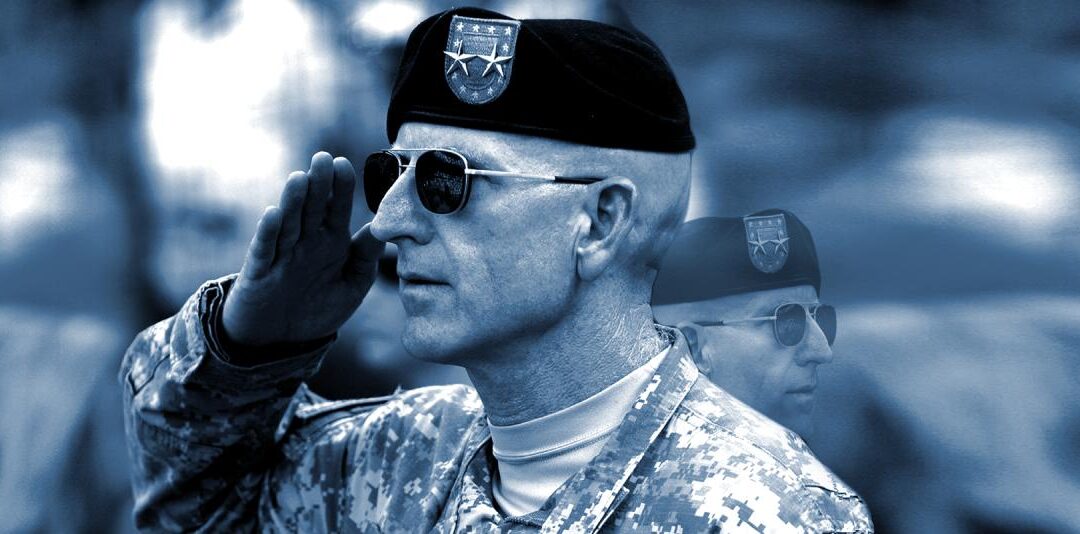Author: Gregg F. Martin, PhD
Ten years ago, I received a call on a Friday afternoon from my 4-star boss’s aide. He said, “The Chairman [of the Joint Chiefs of Staff] wants to see you on Monday morning at 1000 hours in his office at the Pentagon. I was a 58-year old 2-star general with 35 years of remarkably successful service, and was President of the National Defense University, or NDU.
Upon entering his office, the Chairman gave me a warm hug and said, “Gregg, I love you like a brother, you’ve done an amazing job – an A-plus – but your time at NDU is over. You have until 1700 hours today to resign, or I’ll fire you! And I’m ordering you to get a psychiatric exam this week at Walter Reed.”
I resigned that day, was forced to retire early, was diagnosed with Bipolar Disorder type 1 and Psychosis, and was later hospitalized. My boss made the right call, as I was in full blown mania when he fired me. My behavior was over the top, out of control, frightening, disruptive, and dangerous. He needed to get me out of my command position and into medical care, for my own good, and the good of his university.
From out-of-control mania, I plummeted into crippling depression, terrifying psychosis and bipolar hell, for two years. Eight years ago, I was prescribed the right medications and have been on a journey of recovery ever since. My life today is happy, healthy and purposeful, although not without mental health challenges, which I must manage for life. I’m fortunate; I could easily be dead, due to a variety of causes, including heart attack, stroke, deadly accident, violent encounter, and suicide.
As a soldier and veteran, I was not, and am not, alone, with my mental condition. Extrapolating NAMI’s (National Alliance on Mental Health) statistic that 20 percent of the population are afflicted with a mental condition, that equates to approximately 400,000 of the serving 2 Million service members, and 4 Million of our 20 Million veterans. And due to the high stress and trauma of serving in the military, these numbers are probably much higher. Mental conditions include depression, PTSD, anxiety, traumatic brain injuries, bipolar disorder, moral injury, and more. Many are service and combat related. In subsequent inquiries, both the VA and Army Medical Department concluded that the genetic predisposition for my bipolar disorder was triggered by the intense stress, pressure, thrill and extreme euphoria of leading thousands of soldiers in battle during the Iraq War. Both organizations independently attributed the onset of my bipolar disorder to combat.
Many of these suffering service members and veterans do not receive care, because they are unaware that they have a mental condition. Many others don’t seek help because they are ashamed or embarrassed by stigma. And many who do get treatment, don’t improve, because they succumb to the mental condition, rather than taking charge and owning it. And finally, there is an acute shortage of available care.
This is an urgent problem because not only are so many suffering, many are dying. More than twenty of our brothers and sisters are dying each day by their own hands. In fact, since the start of the post 9/11 wars, less than 7,000 troops have been killed in combat, and nearly 40,000 troops and veterans have died by suicide, many with underlying mental conditions.
So, what to do?
We need a Call to Action that includes: training, improving access to care, people deciding to own their condition, and putting a stop to stigma.
Training includes improving mental health literacy, teaching mental health first aid, training peer support specialists, and teaching service members and veterans how to identify the basic symptoms of the most common mental health conditions; then, how to have that tough conversation with a peer, encouraging them to seek medical help.
Access to care can be improved by developing a comprehensive strategy that encourages qualified people to train for and practice in the mental health field. This includes social workers, therapists, psychiatric nurses, psychologists, psychiatrists, and more. It will take time to alleviate this problem, but the best time to start is now.
When a veteran or service member recognizes they have a mental health condition, they must not shy away or hide from it. They must aggressively OWN their condition, or it will own them. Each individual must decide to embrace and manage their condition, taking charge!
Finally, we ALL must fight to stop stigma, which is based on fear and ignorance. Stigma is unfair and cruel – a form of prejudice. It creates a situation where the afflicted must fight a two-front war: the condition itself, and the social war we call stigma. The most effective way to stop stigma is for people who live with a mental condition, or those close to them, to share their stories and help educate others. Each time a person shares their story, it takes wind out of the sail of stigma.
I have devoted my life to sharing my bipolar story to help stop stigma, promote recovery, and save lives.
Will you join me?
Major General Gregg F. Martin, US Army (Retired) is a combat veteran, and bipolar survivor, thriver and warrior. He is author of “BIPOLAR GENERAL: My Forever War with Mental Illness”. www.bipolargeneral.com
The content of the International Bipolar Foundation blogs is for informational purposes only. The content is not intended to be a substitute for professional medical advice, diagnosis, or treatment. Always seek the advice of your physician and never disregard professional medical advice because of something you have read in any IBPF content.


